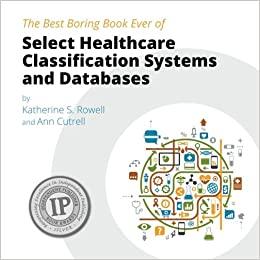Question
// NOTE: The ONLY files that should be #included for this assignment are iostream, vector, and string // No other files should be #included #include
// NOTE: The ONLY files that should be #included for this assignment are iostream, vector, and string
// No other files should be #included
#include
#include
#include
// NOTE: The ONLY files that should be #included for this assignment are iostream, vector, and string
// No other files should be #included
using namespace std;
string addbin(string, string);
string addhex(string, string);
string multbin(string, string);
string multhex(string, string);
int main()
{
cout
cout
cout
cout
cout
cout
cout
cout
cout
cout
cout
cout
system("PAUSE");
return 0;
}
string addbin(string bin1, string bin2)
{
//This function is from a previous assignment
string bin_result = ""; int s = 0; int i = bin1.size() - 1, j = bin2.size() - 1; while (i >= 0 || j >= 0 || s == 1) { s += ((i >= 0)? bin1[i] - '0': 0); s += ((j >= 0)? bin2[j] - '0': 0); bin_result = char(s % 2 + '0') + bin_result; s /= 2; i--; j--; } return bin_result;
}
string addhex(string hex1, string hex2)
{
//This function is from a previous assignment
if (hex1.length()
int length1, length2; length1 = hex1.length(); length2 = hex2.length(); int flag = 0; // carry int get_hex1, get_hex2; int sum;
while (length1 > 0) {
if (hex1 [length1 - 1] >= 'A') get_hex1 = hex1[length1 - 1] - 55; else get_hex1 = hex1[length1 - 1] - '0';
if (length2 > 0) { if (hex2[length2 - 1] >= 'A') get_hex2 = hex2[length2 - 1] - 55; else get_hex2 = hex2[length2 - 1] - '0'; }
else get_hex2 = 0;
//get the sum sum = get_hex1 + get_hex2 + flag;
if (sum >= 16) { int left = sum % 16; if (left >= 10) hex1[length1 - 1] = 'A' + left % 10; else hex1[length1 - 1] = '0' + left; flag = 1; } else { if (sum >= 10) hex1[length1 - 1] = 'A' + sum % 10; else hex1[length1 - 1] = '0' + sum; flag = 0; }
length1--; length2--; }
if (flag == 1) return "1" + hex1; else
return hex1;
}
string multbin(string bin1, string bin2)
{
// IMPLEMENT THIS FUNCTION
// IMPLEMENT THIS FUNCTION
// IMPLEMENT THIS FUNCTION
}
string multhex(string hex1, string hex2)
{
// IMPLEMENT THIS FUNCTION
// IMPLEMENT THIS FUNCTION
// IMPLEMENT THIS FUNCTION
}



Step by Step Solution
There are 3 Steps involved in it
Step: 1

Get Instant Access to Expert-Tailored Solutions
See step-by-step solutions with expert insights and AI powered tools for academic success
Step: 2

Step: 3

Ace Your Homework with AI
Get the answers you need in no time with our AI-driven, step-by-step assistance
Get Started


